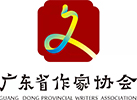
标题

标题
内容
首页 > 自定义类别 > 海上丝绸之路文学发展论坛 > 发言
我译故我在
更新时间:2018-11-11 作者:米拉•艾哈迈德(埃及)来源:广东作家网
我们面临的是一个经济全球化的世界,也是一个文化多元化的世界,全球化和多元化成为当今世界两大并行的趋势。要在多元的语言和文化背景下达成共识,推动区域性和全球的发展目标,需要一个沟通的桥梁——翻译。翻译是通向多彩世界的大门,没有翻译就没有异语文化之间的交流、融合与发展。文学翻译的作用依然是举足轻重的,它事关国家的软实力,事关国家间的和谐发展,事关民族团结和进步事业。因此,文学翻译家们所肩负的使命是光荣而艰巨的。
我开始了我的翻译道路。在大学二年级我翻译了第一篇短篇小说, 我仍然记得它的题目,那就是老舍先生的《骆驼祥子》。毕业以后我在众多领域当过翻译家,但我一直感到最吸引的专业是文学翻译。或者我可以说,我和文学翻译有缘分。
在翻译过程中,有一个阶段与翻译阶段同样重要。文学作品的选择是提供良好翻译的主要条件之一,体现作家的风格和艺术特色,保留原文的艺术和审美价值。这个角色由翻译家负责,以提供被译国家文学的最佳图景。选择文学作品的标准按照每位翻译家的经验有很多不同,标准也不是绝对的,我将介绍一些自己翻译文学作品选择的标准:
一、个人和心理标准
我选择能感动我的富有感情的文学作品。选择能触动我内心的文学作品。我选择能把我代入甚至成为其中一位主人公的文学作品。我一直在寻找具有艺术、审美和人文价值的文学作品。另一方面,我很重视作家的重要性和文学地位,我不一定每次都选择获过高等文学奖项的最有名作家。我觉得中国文学是一个丰富的文学宝藏,有许多优秀的作家,翻译家应该对他们的文学作品有所了解。我认为这是翻译家的重要工作——寻找杰出的文学作品和高水平的作家。由于我很重视翻译文本选择,我常常跟翻译的文本产生了共鸣。
只要我们谈论翻译作品选择的标准,就不能忽视文化标准:我关注并选择反映中国文化的文学作品,作品中具有中国文化特色。这样通过我的翻译,阿拉伯读者可以越来越接近中国文化,不再有疏远感。文学翻译家需要对两种文化都有了解和认识。在服务“一带一路”建设的国家大局中,翻译发挥好翻译联通中外、沟通世界的重要作用,为推动中国与“一带一路”沿线国家之间的政策沟通、增进中国与各国之间的相互了解和友谊服务。
二、读者标准
我们应该在翻译作品选择过程中考虑读者,考虑他的要求,注意读者的品味,了解他们最喜欢的文学形式和感兴趣的内容。没有读者的译作,或很少读者的译作,是毫无价值的。例如,当我选择鲁迅的作品时,因为它类似于俄罗斯文学,阿拉伯读者喜欢俄罗斯文学,它带着讽刺的风格和黑色喜剧,因此我对鲁迅的翻译充满了热情。我成为阿拉伯世界第一个把鲁迅作品直接从中文翻译成阿拉伯语的翻译。
三、社会标准
我对反映社会和人道主义价值的文学作品感兴趣,特别是它对阿拉伯读者具有现实针对性,能够促使阿拉伯人民反省和觉醒,更能激发他们的进步和发展。应该说,没有旨在沟通人类心灵的跨文化交流,即我们所说的翻译活动,人类社会便不可能有今天的发展。从中国翻译历史看,远的不说,近一个世纪以来,中国社会的每一次变革与重大发展,都离不开翻译。
总之,笛卡尔说“我思故我在”,而我说“我译故我在”。 我一直努力地选择在世界文学中具有重要地位的特殊的中国文学作品,以此打开读者们心中的窗户,让他们接近这个非常遥远的国家。我一直试图完成我的人道主义使命,揭开这个充满故事和秘密的文学世界。如果作家有笔能够改变国家的命运,翻译家的笔不会低于作家,译作同样能够解放人民,激发思想。
实际上,文学翻译是一项艰巨的任务,它的回报与艰辛不成比例,这让翻译家的生存状况受到挑战。著名翻译家孙仲旭日前因为抑郁症在广州自杀,但是由于他的译作,他还活着,他在我们中间仍然存在着。直到我生命中的最后一口气,我将尝试通过各种翻译方式,来展现我的第二祖国,也就是中国的文学魅力。
I Translate Therefore I Am
Mira Ahmed (Egypt)
We are faced with a world of economic globalization and cultural diversity, which have become two parallel trends in the world today. To reach a consensus in a multi-lingual and multicultural context and to promote regional and global development goals requires a bridge of communication—translation. Translation is the gateway to a colorful world. Without translation, cultures of different languages will have no exchange, no integration, and no development. Literary translation, which is related to a country’s soft power, harmonious development, and national unity and progress, plays a key role, and the mission of literary translators is glorious and arduous.
I started as a translator when I translated a short novel for the first time in my second year of college. I still remember the novel’s title, that is, Lao She’s Luotuo Xiangzi. After graduation, I have worked as a translator in many fields, but literary translation is always the most attractive one to me, or I should say that I am predestined to literary translation.
For translation, there is an issue that is as important as translation—the selection of literary works. It is a prerequisite for a translator to provide good translation. Translator is responsible for reflecting the writer’s original style and artistic characteristics and retaining the source text’s artistic and aesthetic values to best show the picture of the national literature of the original text. The criteria for choosing a literary work vary with the experience of the translator, and they are not always the same. Here, I’d like to introduce my criteria.
First, personal and psychological criteria.
I choose a literary work that is emotional and can touch my heart, that can bring me a sense of involvement and can even enable me to feel as if I were one of the leading characters. I have been searching for literary works with artistic, aesthetic and human values. Also, I attach great importance to the importance and literary status of the writer. I don’t necessarily choose the most famous writers who have won high literary awards. In my opinion, Chinese literature is a rich literary treasure with a great many excellent writers, and translators should have knowledge of their literary works. I think this is a translator’s important task—to look for excellent literary works and high-level writers. Since I value the selection of the translated text, there is often a story between me and the text.
Speaking of the criteria for selecting translated texts, cultural criteria cannot be ignored: I often choose the works that reflect Chinese culture and have Chinese cultural characteristics. In this way, through my translation, Arab readers can be less alienated to Chinese culture and get closer to it. Literary translators need to know both cultures. Now that China is building the “Belt and Road”, translator plays a key role in China’s communication with the world, and serves policy communication between China and the countries along the “Belt and Road” and each other’s mutual understanding and friendship.
Second, reader criteria.
When selecting the translated work, we should consider the readers, their requirements, their taste, and their favorite literary styles and interested works. A translated work with few or even no readers is worthless. For example, I chose to translate Lu Xun’s works because they are similar to Russian literature, which is to the taste of Arab readers for it is satirical and black comedy. Therefore, I was enthusiastic about Lu Xun’s works and became the first one in the Arab world to have translated Lu Xun’s works directly from Chinese into Arabic.
Third, social criteria.
I am interested in literary works that reflect social and humanitarian values, especially those that are realistically targeted to Arab readers, those that can motivate the Arab people to reflect and awaken to inspire their progress and development. It should be said that without cross-cultural communication aimed at communicating the human mind, that is, what we call translation activities, human society cannot attain today’s development. From Chinese translation history, regardless of a long time ago, just have a review of the past century and we will find every change and major development of Chinese society has been inseparable from translation.
In short, Rene Descartes once said, “I think therefore I am,” and I want to say, “I translate therefore I am.” I have been working hard to select special Chinese literary works that have an important place in world literature, so as to open the window of readers’ hearts and let them approach this distant country. I have been trying to accomplish my humanitarian mission and uncover this literary world full of stories and secrets. If we say the writer has the pen to change the destiny of the country, then the translator’s pen will be as important as the writer’s, as translation can also liberate the people and inspire thoughts.
In fact, literary translation is an arduous task, and its reward is disproportionate to the hardship, which poses a challenge to the translator’s living conditions. Sun Zhongxu, a famous translator, committed suicide in Guangzhou days ago because of his depression, but because of his translation, he is still alive, and he is still among us. Until the last breath of my life, I will try various ways of translation to show the literary charm of my second motherland—China.